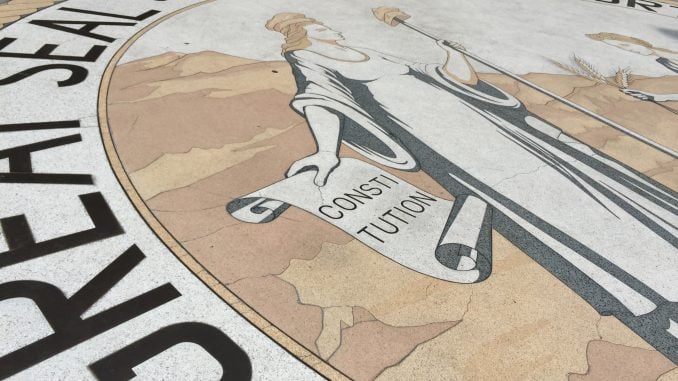
RALEIGH — The funding needed for school construction and capital needs is one step closer to reality as Senate Bill 5 heads to the House. However, the thinking in Raleigh on issues like school construction funding can be different than what is considered in other parts of the state.
Dr. Terry Stoops, Vice President of Research and Education Studies for the John Locke Foundation, stresses efficiency and oversight concerns.
“While much of the discussion has centered on how to fund the school construction, elected officials need to hold districts accountable for the use and misuse of taxpayer dollars,” said Stoops.
“The current, wish-fulfillment model of building and renovating public schools will not address short- and long-term school facility needs. If the state plans on making a sizable investment in school buildings, then lawmakers must ensure that districts must use those funds efficiently,” Stoops said.
Dr. Stoops said that Senate Bill 5’s plan avoids a billion dollars in debt service, but that neither the Senate plan or the bond plan has enough accountability measures. In addition, neither plan includes ways for districts to work with non-profits or the private sector to address class size capacity or maintenance issues.
“The ideal plan would include both input and outcome components,” Dr. Stoops said.
Stoops noted that most school districts are seeing student enrollment decline, and identifying ways for districts to “streamline operations through school mergers and closures” needs to happen before funds are dispersed.
“Charter school enrollment is booming,” said Stoops. “Whether lawmakers opt for the pay-as-you-go model or the bond, it is time for them to consider including charters, which currently do not receive capital funding from counties or the state, in the conversation.”
A.L. “Buddy” Collins is a former member of the State Board of Education and a former member of the Winston-Salem Forsyth County School Board. Collins’s opinion on oversight lines up with Dr. Stoops.
Collins says whichever way the state ends up going, a spending plan and oversight of the spending is critical to success.
“’What is it we are trying to accomplish?’ is the first thing policymakers need to be asking,” said Collins. “And then the question becomes ‘how do you accomplish that?'”
“Unlike some conservatives, I see the role of a bond.” said Collins, as he recalled how he came to know Dr. Terry Stoops of the John Locke Foundation.
Stoops had criticized the use of a bond and said people should vote against them because the school systems ended up wasting or mismanaging the money. Collins said he “called his hand on it, invited him to come to Forsyth” so that Stoops could see how bond money could be spent correctly.
An example that Collins brought up that highlights spending disparities among districts was that of a high school built in Forsyth County for $30 million, while next door in Guilford County, a high school was built for $65 million.
As a result of his visit to the district, Stoops ended up writing a piece called the Forsyth Formula which laid out what Stoops considered best practices for school bonds.
The Forsyth Formula contains ten core principles set in place by the Winston-Salem Forsyth school board that all aim to keep spending in check, spend efficiently, and avoid costly redundancies.
“The Treasurer’s office has the local government commission. It’s responsible for the sale of the bond, it’s responsible for payment of this debt and, quite frankly, this construction project should be in the Treasurer’s office,” said Collins asked about oversight of a bond.
“Folwell’s on the State Board of Education and the Treasurer should be overseeing how this thing is spent, otherwise Terry Stoops is going to be right, and that is, the money is going to be wasted,” Collins said. “If Forsyth can build a high school for $30 million and Guilford for $65 million, there is a real disparity on what a district is doing with the money.”
On funding, Collins said he wanted more clarity on the funding formula and who would be managing the funds and accountability measures. He also questioned if both proposals put together would be enough money and suggested supplementing those funds through monies he sees as currently “left on the table” by taxing gambling machines.
Collins said if it were him, he’d do both the bond, under the guidance of the state treasurer, and Senate Bill 5.




